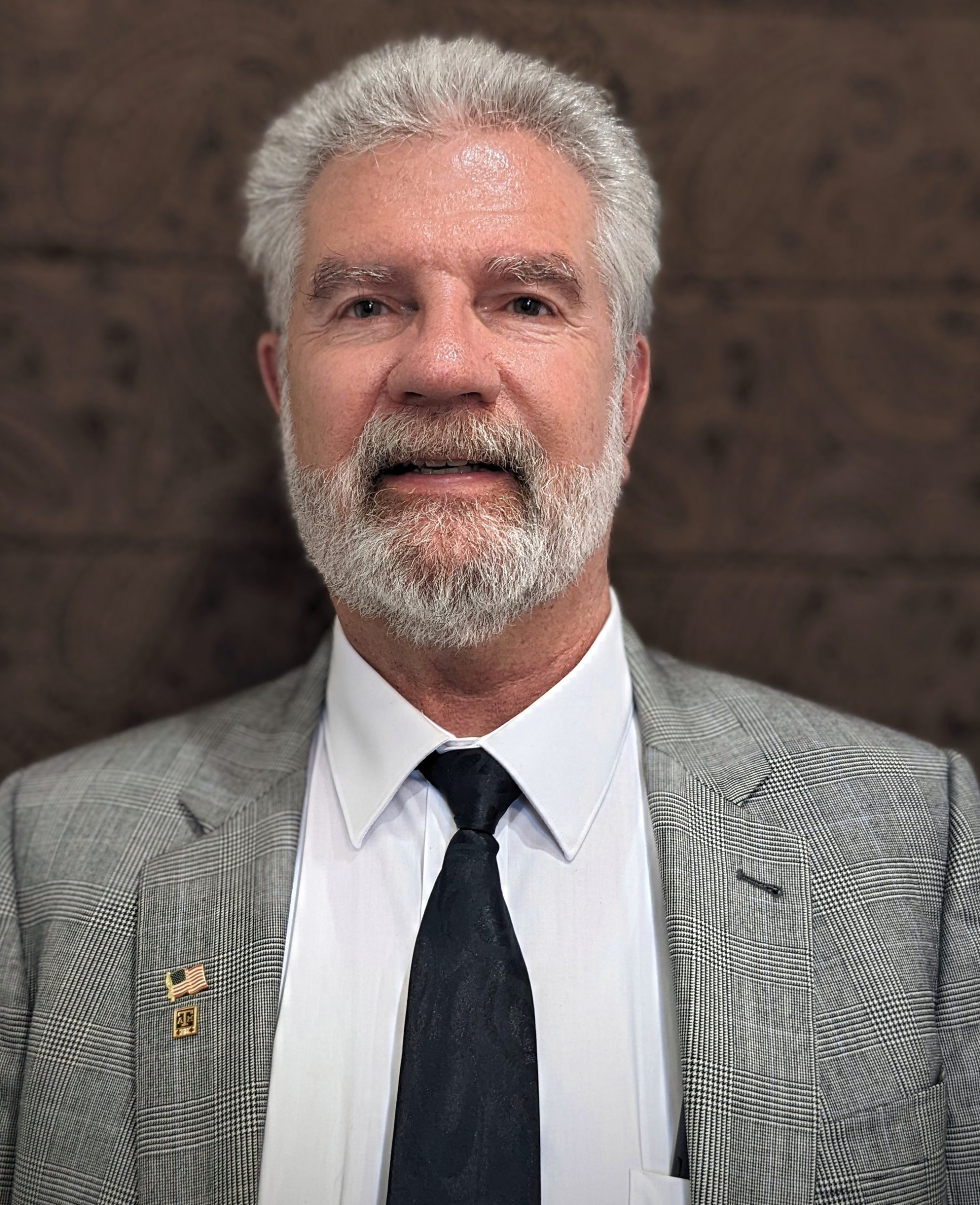
M.S. Agricultural Economics – Thesis Option
Our master’s degree in agricultural economics provides professional training for students seeking the skills in management, finance, real estate, entrepreneurship, marketing, policy analysis, and decision-making needed in today’s business world with a focus on the food and fiber industry. STEM approved program.
Program Details
- Degree: M.S. Agricultural Economics
- Credit Hours: 32 total credit hours
- Planning Guides with Degree Curriculum
- More details about the program can be found in the Graduate Handbook
- Stem Approved: International students are eligible for the 24-Month Stem Extension of Optional Practical Training (OPT)
Field Areas
Students pursuing a M.S. in Agricultural Economics may choose from the following three field areas:
Agribusiness
Students who opt for this field specialization will acquire a unique skill set enabling them to excel in teaching agribusiness and conducting research in various professional arenas, including academia, government, and consulting. This program delivers a robust foundation in economic theory and its practical application. For those seeking to further hone their expertise and tailor their skills, students within the agribusiness field specialization can choose to concentrate on one of the following research focus areas.
Applied Market Analysis
Students who opt for this field specialization will develop a unique skill set that equips them to excel in teaching agricultural economics and conducting in-depth research in information economics and food markets. This field of study empowers students to acquire expertise in various crucial areas, including market and demand analysis, product valuation, the utilization of directed acyclic graphs in economic analysis, commodity futures and options, information acquisition, price dispersion, industrial organization, and auctions.
To further enhance their knowledge and refine their skill set, students pursuing the Applied Market Analysis field specialization can choose to focus on one of the following research areas:
- Behavioral and Experimental Economics
- Demand Analysis
- Health Economics
- International Trade
- International Development
- Agricultural Law
- Agricultural Policy
- Livestock Economics
- Agricultural Marketing
- Sales in Agriculture and Agribusiness
- Community Economics
- Quantitative Methods
- Crop Insurance and Risk Management
Natural Resource and Environmental Economics
Students selecting this field specialization will acquire a distinctive skill set that qualifies them to excel in teaching agricultural economics and conducting applied economic research. This research is dedicated to assessing the utilization, transfer, and allocation of natural resources, contributing valuable insights to inform environmental policies and strategies for natural resource management. Through this specialization, students will gain expertise in the application of economic tools and theories to promote the health and sustainability of our natural world.
To further enhance their expertise and refine their skill set, students pursuing the Natural Resource and Environmental Economics field specialization have the opportunity to concentrate on one of the following research focus areas:
Prerequisites
Students planning on entering the master’s program in the Department of Agricultural Economics should prepare themselves by completing the following study in math, statistics and economics.
Math Requirements
MATH 142: Business Calculus
This course covers limits and continuity; techniques and applications of derivatives including curve sketching and optimization; techniques and applications of integrals; emphasis on applications in business, economics, and social sciences.
Statistic Requirements
STAT 303: Statistical Methods
Intended for undergraduates in the social sciences. Introduction to concepts of random sampling and statistical inference, estimation and testing hypotheses of means and variances, analysis of variance, regression analysis, chi-square tests.
Economics Requirements
ECON 323: Microeconomics Theory
This course covers determination of prices and their role in directing consumption, production and distribution under both competitive and non-competitive market situations.
ECON 410: Macroeconomic Theory
This course covers theory of the determination of aggregate levels of national income, employment and prices; monetary and fiscal policy analysis, effects of government debt and deficits.
Job Opportunities
Students pursuing a M.S. Non-thesis degree in Agricultural Economics can choose from twelve areas of specialization that best align with their professional goals.
Agricultural Entrepreneurship
Develop the skills to innovate and lead in the agricultural sector, combining business principles with agricultural knowledge. Students learn to create and manage agribusiness ventures, explore market opportunities, and develop sustainable business models. The program prepares them to launch their own agricultural enterprises or drive innovation within existing agribusinesses, with a strong emphasis on sustainability and market-driven strategies.
Possible Job Sectors and Industries
- Agribusiness sector
- Startup ecosystem
- Business development
- Innovation roles within established agribusinesses
- Product development
- Emerging markets
- Research institutions
- Universities
Possible Careers
- Advisors
- Agricultural finance specialists
- Agricultural venture startups (such as launching innovative farming operations, agritech startups, or value-added food product companies)
- Consultants
- Educators
- Researchers
- Venture capital specialists
Faculty
Agricultural Finance and Credit
Focuses on financial aspects of agriculture, including the analysis of agricultural credit markets, investment in agriculture, risk management, insurance, and the financial health of farms and agribusinesses.
Possible Job Sectors and Industries
- Agribusiness companies
- Agricultural insurance
- Banks
- Farm management consulting
- Government agencies focused on rural development, agricultural policy and sustainability
- Investment firms
- Non-profits focused on rural development, agricultural policy, and sustainability
- Private sector
- Public sector
- Research institutions
- Universities
Possible Careers
- Advisors
- Educators
- Financial analysts
- Researchers
Agricultural Management
Equips students with the knowledge and skills to effectively manage agricultural enterprises, focusing on optimizing productivity, resource use, and sustainability. The program covers topics such as farm operations, financial management, supply chain logistics, and the application of technology in agriculture. Graduates are prepared to take on leadership roles in farm management, agribusiness, and agricultural consulting, driving efficiency and innovation in the agricultural sector.
Possible Job Sectors and Industries
- Agribusiness management
- Agricultural cooperatives
- Government agencies
- Large-scale farms
- Non-profit organizations
- Private sectors
- Public
- Research institutions
- Universities
Possible Careers
- Agricultural extension services
- Business managers
- Consultants
- Educators
- Farm managers
- Operations managers
- Researchers
- Rural development
Agricultural Policy Analysis
Involves the study and evaluation of government policies affecting agriculture, such as subsidies, trade regulations, environmental regulations, and food safety standards. This area focuses on understanding the impacts of these policies on farmers, consumers, and the economy.
Possible Job Sectors and Industries
- Government agencies
- International organizations
- Non-profit organizations
- Research institutions
- Universities
Possible Careers
- Educators
- Policy advisors
- Policy analysts
- Researchers
Consumer Economics and Food Policy
Deals with the economic analysis of consumer behavior in relation to food, nutrition, and food security. It also explores the impact of food policies on consumer welfare, food prices, and access to healthy food.
Possible Job Sectors and Industries
- Advocacy groups
- Government agencies
- Non-profit organizations
- Private sector
- Research institutions
- Universities
Possible Careers
- Advisors for government bodies
- Consumer insight analysts
- Educators
- Market researchers
- Program managers
- Policy advocates
- Policy analysts
- Researchers
Financial Planning
Studying Financial Planning in a master’s program provides students with advanced knowledge in personal finance, investment strategies, tax planning, and retirement planning. The program emphasizes the development of skills needed to create comprehensive financial plans tailored to individual or family needs, ensuring financial security and growth. Graduates who take the seven financial planning classes (435, 437, 438, 439, 442, 689 (stacked with 436, and 689 (stacked with 441)) are prepared to become certified financial planners and are qualified to sit for the CFP® exam. As certified financial planners, graduates are prepared for working in roles that involve advising clients on managing their finances, investments, and achieving long-term financial goals.
Possible Job Sectors and Industries
- Banking
- Corporate financial planning
- Financial advisory firms
- Financial consulting
- Insurance companies
- Wealth management
Possible Careers
- Advisors
- Corporate planners
- Educators
- Financial planners
- Financial specialists
Food and Agricultural Markets
Involves the study of the structure, conduct, and performance of agricultural markets. This area covers topics like price analysis, market structure, supply and demand dynamics, market integration, and the role of futures markets in agriculture.
Possible Job Sectors and Industries
- Agribusiness
- Food and agricultural companies
- Food manufacturers
- Food policy
- Government agencies
- International trade
- Regulatory bodies
- Research institutions
- Think tanks
- Trading firms
Possible Careers
- Commodity analysts
- Market analysts
- Marketing
- Market regulators
- Policy analysts
- Researchers
- Sales management
International Agricultural Trade and Development
Examines the global trade of agricultural products, including trade policies, international markets, and the economic development of agricultural sectors in developing countries. It also includes the study of global food security and the impact of trade agreements on agriculture.
Possible Job Sectors and Industries
- Agribusiness companies
- Global organizations
- Government agencies
- Multinational agribusiness firms
- NGOs
- Non-profit organizations
- Private sector
- Research institutions
- Trade associations
- Universities
Possible Careers
- Development specialists
- Educators
- International trade managers
- Market development specialists
- Policy advisors
- Project managers
- Trade analysts
- Trade specialists
- Researchers
Production Economics and Farm Management
Focuses on optimizing the use of resources on farms, improving efficiency, and maximizing profits. This area involves the study of cost structures, input-output relationships, risk management, and decision-making processes in farm operations.
Possible Job Sectors and Industries
- Agribusiness
- Agriculture
- Consulting
- Government agencies
- Non-profits
- Research institutions
- Universities
Possible Careers
- Agricultural consultants
- Agricultural extension services
- Analysts
- Educators
- Farm managers on large-scale farms or agricultural enterprises
- Operations managers on large-scale farms or agricultural enterprises
- Production economists
- Researchers
- Rural development
Real Estate
Gain in-depth knowledge of property markets, investment strategies, and real estate development. Students learn about financial analysis, market trends, urban planning, and the legal aspects of real estate transactions. The program equips them with the skills needed to excel in roles such as real estate investment, development, consulting, and property management.
Possible Job Sectors and Industries
- Commercial banking
- Corporations
- Government agencies
- Individual investors
- Investment trusts (REITs)
- Real estate development firms
- Property management
- Urban planning and development (working with municipalities or planning agencies)
Possible Careers
- Advisors
- Developers
- Investment managers
- Real estate analysts
- Real estate consultants
Faculty
Resource and Environmental Economics
Examines the economic aspects of natural resource use and environmental sustainability in agriculture. Topics include land use, water management, soil conservation, pollution control, climate change and the economic valuation of ecosystem services.
Possible Job Sectors and Industries
- Consulting firms
- Environmental organizations
- Government agencies
- International organizations
- Non-profit organizations
- Private sector (particularly in industries such as energy, agriculture and manufacturing)
- Research institutions
- Universities
Possible Careers
- Educators
- Environmental analysts
- Environmental economists
- Policy advisors
- Policy analysts
- Project managers
- Researchers
- Sustainability consultants
Rural Development and Regional Economics
Focuses on the economic development of rural areas, analyzing factors that influence rural economies, such as infrastructure, education, healthcare, and access to markets. It also looks at the impact of agricultural activities on regional development.
Possible Job Sectors and Industries
- Consulting firms
- International development agencies
- Government agencies
- Non-profit organizations
Possible Careers
- Consultants
- Policy analysts
- Program managers
- Project coordinators
- Regional planning and economic development roles within local, state, or federal government agencies
- Rural development specialists
Graduate Admissions
Texas A&M University is the premier choice to gain a graduate degree, thanks to our national academic ranking and high financial value. Joining the Aggie Family and gaining an advanced degree from Texas A&M puts you in the highest class of job candidates.
Please Direct all Admissions Questions to:
AGEC Graduate Program Administration
David Leatham
Professor and Associate Head for Graduate Programs
Kathleen Roche
Graduate Program Coordinator - Agricultural Economics


